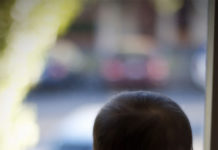While taking selfies is popular, most people would prefer to see fewer selfies on social media, says a new study.
According to the findings, people consider their own selfies as more authentic and self-ironic, while selfies taken by others were perceived as more self-presentational and less authentic.
Researchers at the Ludwig Maximilians University, Munich conducted an online survey, which assessed people’s motives and judgements when taking and viewing selfies.
The survey involved 238 people from Austria, Germany, and Switzerland. Results showed that 77 percent of the participants took selfies regularly.
“One reason for this might be their fit with widespread self-presentation strategies such as self-promotion and self-disclosure,” says Sarah Diefenbach, professor at the Ludwig Maximilians University.
Although 77 percent of the participants regularly took selfies, 62-67 percent expressed strong agreement for its potential negative consequences, such as threats to self-esteem. 82 percent of the participants preferred to see other types of photos on social media, instead of selfies.
Many people regularly take selfies but most people do not appear to like them. Diefenbach has termed this phenomenon as the “selfie paradox”.
“The selfie as a self-advertisement, plying the audience with one’s positive characteristics, or the selfie as an act of self-disclosure, sharing a private moment with the rest of the world and hopefully earning sympathy, appear to be key motivators,” she added.
The third form of self-presentation is categorized as an understatement, where people portray themselves and their abilities and achievements as unimportant.
Participants who scored highly on “self-promotion” or “self-disclosure” were more likely to be positive about taking selfies, as compared to participants who scored highly on “understatement.”
Considering these statements literally means that selfies should have never become as popular as they are.
Looking at how the participants viewed their own selfies in comparison to those of others, would help to understand this contradiction.
The findings showed a more likable interpretation of own selfies and a critical interpretation of others’ selfies, indicating a selfies bias. Participants attributed greater self-presentational motives and less authenticity to others’ selfies. However, those taken by themselves were judged as self-ironic and more authentic.
“This may explain how everybody can take selfies without feeling narcissistic. If most people think like this, then it is no wonder that the world is full of selfies,” explained Diefenbach.
The study was published in the journal Frontiers in Psychology.



























